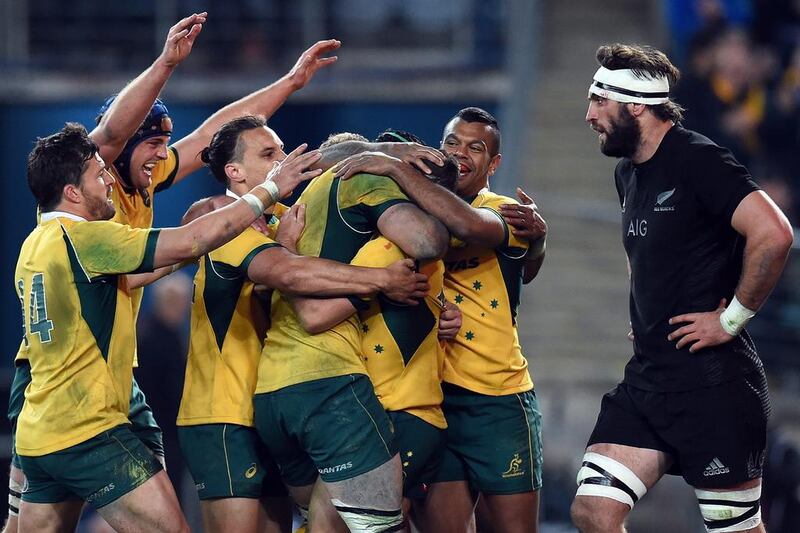The cracks are starting to appear, but are they big enough for one of the other seven teams to take advantage of them?
New Zealand once again have breezed through to the quarter-finals of the Rugby World Cup, but they hardly put down a marker to scare the other teams.
With a match against their tournament bogey team France in Cardiff on Saturday and a potential clash with bruising Rugby Championship rivals South Africa, or Wales, in the semi-finals, Steve Hansen’s side look more vulnerable now than at the beginning of the tournament.
Even before cornerstone prop Tony Woodcock suffered a tournament-ending injury, New Zealand’s scrum looked wobbly.
But it is not only in the set piece that the All Blacks’ front eight has shown weakness. Captain Richie McCaw has been operating too much as a lone wolf, as back-row brothers Jerome Kaino and Kieran Read have been roped in to ball-carrying duties too often.
It has left the All Blacks exposed at the breakdown, with both Tonga and Georgia pinching significant amounts of possession in their matches against the world’s No 1-ranked team.
One of the reasons for this is because Hansen ordered his squad to limit their hunt for turnovers and instead concentrate on line speed and physicality in defence.
Hansen believes that these two aspects of the game will play a fundamental part in the outcome of the knockout matches, but the unfamiliarity with the new ways of playing has resulted in New Zealand starting matches very slowly.
It is all very well fans in New Zealand are murmuring that their side will step up a gear for the knockout rounds, but rugby is a habitual sport and if you are not consistently playing at the level required you can come unstuck at World Cups. New Zealand have a long track record of this.
Where New Zealand have been performing is in the backs. Julian Savea arrived at the tournament with a worrying lack of form, but has cruised to five tries to top the standings alongside South Africa’s Bryan Habana. The Wellington Hurricanes wing is currently the worst player in his side’s back three, too.
Nehe Milner-Skudder has been a revelation, while Waisake Naholo has played as well as you could expect coming back from a broken leg.
In contrast, Australia have been growing in maturity and humility with every game, and their defensive effort against Wales with 13 men was defining.
Thanks to constant reappraisal from Argentine scrummaging legend Mario Ledesma, Australia have showed that their eight can now at least achieve parity with some of the best forwards in the tournament.
The tireless David Pocock when in tandem with fellow back-row forward Michael Hooper was one of the main reasons for Australia’s victory over the All Blacks during the Rugby Championship and together they form a highly effective foraging unit.
In the backs, Bernard Foley and Matt Giteau have worked well together as interchangeable fly-halves who offer right-foot and left-footed kicking options for their team.
Coach Michael Cheika has been hugely impressive, and his decision to use two completely different sides in the first two matches ensures that his squad are fresher than most.
Australia have the easier path to the semi-finals, too. Scotland have been a combination of awful and brilliant, and often in the same match. The bottom side in the last Six Nations were faring the best among their Celtic cousins as both Wales and Ireland suffered horribly with injuries and suspensions, but that all changed on Tuesday.
Ross Ford, their most experienced forward, and Jonny Gray, their main line-out caller and destructive tackler, have been suspended for the rest of the tournament for their combined challenge on Samoa’s Jack Lam, although both have appealed.
Whoever coach Vern Cotter picks for Twickenham on Sunday, it is likely that he will have to choose between Dave Denton or Josh Strauss, both of whom ply their trade at No 8.
Whichever way you slice it Scotland look up against it without their key forwards, and with South Africa looking off the pace and Argentina unlikely to make it to the final, Australians can feel confident should they face-off against their trans-Tasman rivals on October 31.
sports@thenational.ae
Follow us on Twitter @NatSportUAE





